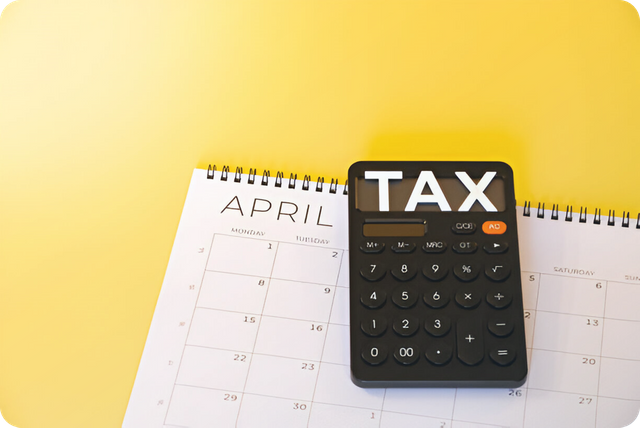Tax Period UK - Key Tax Year Dates and Deadlines

The tax system in the UK follows strict timelines, and understanding tax periods is essential for individuals and businesses. Missing deadlines can lead to penalties, interest charges, and cash flow issues. Whether you're an employee, self-employed, or running a business, knowing your tax period helps you file on time and stay compliant.
This guide explains tax periods for income tax, corporation tax, VAT, and PAYE, along with key tax year dates and deadlines to remember.
What is a Tax Period in the UK?
A tax period is the timeframe set by HMRC for reporting and paying taxes. It determines when income, profits, and business transactions are assessed for taxation. Tax periods vary depending on the type of tax, such as income tax, corporation tax, or VAT. The most common tax period is the standard tax year, running from 6 April to 5 April of the following year.
Different tax periods apply to:
- Individuals (employees, self-employed, and landlords)
- Businesses (limited companies and sole traders)
- Employers handling PAYE and National Insurance
Key Tax Year Dates for Individuals
Self-Assessment Tax Year
- The UK personal tax year runs from 6 April to 5 April of the following year.
- Self-employed individuals and landlords must report earnings through self assessment tax return and pay tax accordingly.
Self-Assessment Deadlines
- 31 October -- Deadline for paper tax returns.
- 31 January -- Deadline for online tax returns and tax payments.
- 30 December -- Deadline for self-assessment if PAYE is used to collect tax.
- 31 July -- Second payment on account deadline (if applicable).
PAYE Tax Period
- Employees under PAYE have tax deducted at source.
- Tax is calculated based on weekly, monthly, or annual earnings.
- Tax codes and tax-free allowances determine how much is deducted each period.
Tax Periods for Businesses
Corporation Tax Period
- Businesses have their own tax periods based on their accounting year.
- Corporation tax is due nine months and one day after the end of the accounting period.
VAT Return Tax Periods
- VAT-registered businesses must submit VAT returns based on their chosen scheme:
- Quarterly VAT returns -- Most common.
- Monthly VAT returns -- For businesses with high VAT payments.
- Annual VAT scheme -- For those eligible to file once a year.
PAYE Tax Period for Employers
- Employers must report and pay payroll taxes under PAYE.
- Monthly PAYE payments are due by the 22nd of each month (if paying electronically) or the 19th (if paying by post).
- Employers must submit Full Payment Submissions (FPS) each time they pay employees.
How to Check Your Tax Period
For Individuals:
- Log in to your HMRC online account to check tax return deadlines.
- Use HMRC's tax calculator tools to estimate payments.
For Businesses:
- Check your company's financial year-end and tax deadlines using your HMRC business account.
- Keep track of VAT and PAYE payment schedules to avoid missed deadlines.
What Happens If You Miss a Tax Deadline?
Missing tax deadlines can result in:
- Late filing penalties -- £100 fine for late self-assessment tax returns.
- Interest on late payments -- Charged daily if tax isn't paid on time.
- Additional fines -- If tax remains unpaid for months.
For businesses, failure to submit VAT returns or corporation tax payments can lead to further penalties and investigations from HMRC.
How to Stay on Top of Tax Periods
Use Accounting Software
- Digital tools like QuickBooks, Xero, and FreeAgent help track deadlines.
- Some software integrates directly with HMRC for easy submissions.
Set Up Reminders
- Use calendar alerts to keep track of key tax dates.
- HMRC offers email and text reminders for self-assessment taxpayers.
Hire a Tax Accountant
- Tax accountants help with accurate filings and on-time submissions.
- They can handle complex tax matters, saving time and reducing errors.
Read more at, https://www.goforma.com/tax/what-are-tax-periods
Understanding tax periods in the UK is key to staying compliant and avoiding penalties. Whether you're an individual or a business owner, keeping track of key tax dates and deadlines helps with financial planning and stress-free tax management.
Hiring a tax accountant can save you time, money, and effort. An expert can help with tax calculations, filing returns on time, and identifying potential tax-saving opportunities.